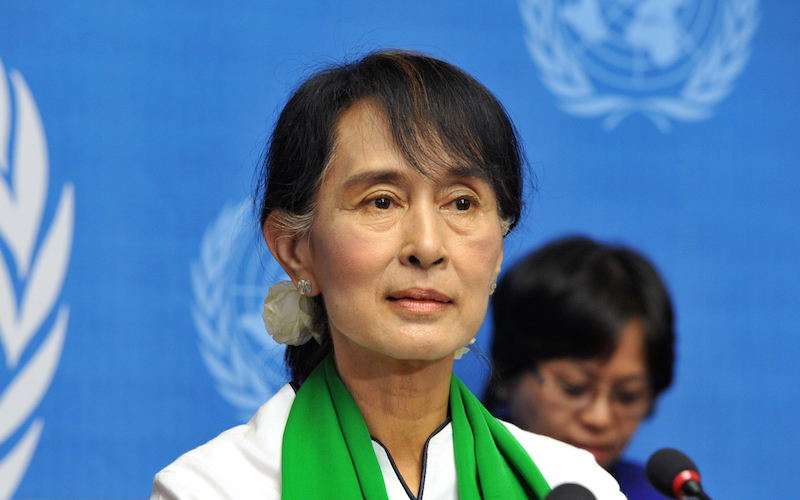
A New Chapter in China-Myanmar Relations
Last month, Myanmar leader Aung San Suu Kyi, after taking office as State Counselor, deliberately made her first official visit to China, before visiting the United States. The visit to China is believed to be an effort to repair and strengthen bilateral ties between the two nations that had once had a much closer relationship. The term “baobo” (brothers and relatives) was often used to describe their level of closeness in years back.
Myanmar (then Burma) was the first non-Communist country to recognize the People’s Republic of China founded in 1949. In turn, China stood firmly together with Myanmar, even when its former military-run regime was isolated by the international community.
In recent years, bilateral ties have been strained especially during the recent transition period of Myanmar’s new government. However, this is likely to change for the better.
One could argue their relationship has become more transactional. With billion-dollar infrastructure deals high on the agenda, there is little doubt that the emphasis is focused on the bottom line. Relationship building is of course important but there is a saying that business comes first.
Perhaps both countries can now be equal partners.
If anything, China’s show of support in the recent peace talks between the Myanmar government and its ethnic groups was an encouraging move. This could be their first step towards long term cooperation, regardless of the outcome of the peace talks.
A win-win situation is envisaged for Myanmar as it seems committed to work with China in the long run which is both logical and beneficial.
Myanmar needs China in order to grow at a faster pace. It wants to build large-scale infrastructure projects such as ports, bridges and highways and China has been assisting in this capacity. Since the 1990s, China has helped Myanmar build its hydropower plants, oil pipelines and key bridges which have played a supporting role in ensuring the country’s long term stability. Today, China is Myanmar’s largest foreign investor, far ahead of those countries in ASEAN.
Likewise, China needs Myanmar to support its strategic development, especially the Bangladesh–China–India–Myanmar (BCIM) Economic Corridor and the ambitious “One Belt, One Road” initiative.
All this comes at a time where existing banks in Myanmar, including big players from Asia, are not ready to fully finance large government projects. The Japan International Cooperation Agency (JICA), the World Bank and the Asian Development Bank (ADB) have supported several Myanmar projects, but that is not enough to meet the country’s development gaps.
It is, therefore, in China’s interests to invest in Myanmar. As a rising economic power with global stature, China continues to bear some implicit responsibility, which could also be viewed as a thankless role. For example, China’s aggressively investing in Myanmar, puts the US and Japan on guard. If China does not support Myanmar’s development, it could be viewed as a well-to-do neighbor unwilling to assist during difficult times.
China is perceived as aggressive and overbearing and many in Myanmar believe that the Chinese are out to exploit them, so they do not trust them. Reports of jade smuggling into China across Myanmar borders in past years have worsened China’s public image.
However, we do not have the impression that China is seeking to control Myanmar nor taking advantage of Myanmar’s circumstances during development.
We are convinced that China is determined to oppose any attempt by any country or group of countries, to impede the “Chinese Dream.” The question is how it would treat smaller countries like Myanmar, a country that has historical and strategic significance.
Clearly, China wants to participate in the growth of Myanmar in a peaceful and harmonious way. As the world’s largest exporter, it brings an efficient system of work ethic and systems. It also brings thousands of years of culture and heritage to the table. But business is business.
Brotherhood is no more than a propaganda slogan. China should re-evaluate its diplomacy to maintain more sustainable relationships with others. The consequences could be damaging if this is not managed well.
Its past split with “big brother,” the Soviet Union and the ongoing dilemma with its “little brother,” North Korea, are vivid examples of tensions created by fluid dynamics. In the case of Myanmar, the key point is: actions speak louder than words especially when development is now the priority.
As China-Myanmar relations enter a new chapter, commercial initiatives are expected to guide mutual cooperation. In the future, China and Myanmar may no longer be as close as before, but at least their new partnership will be more sustainable.


